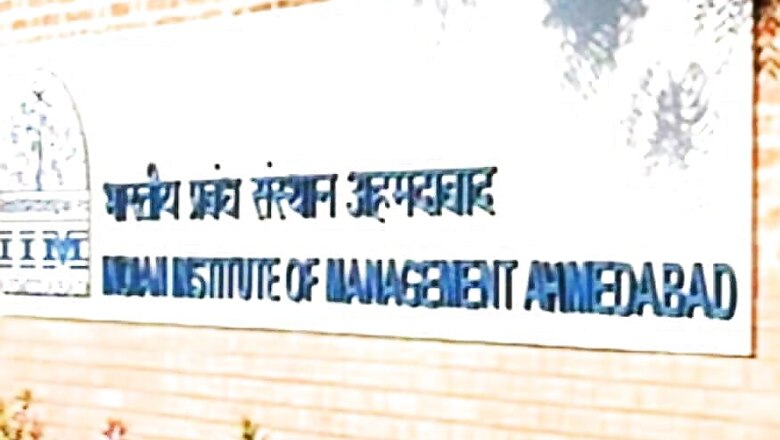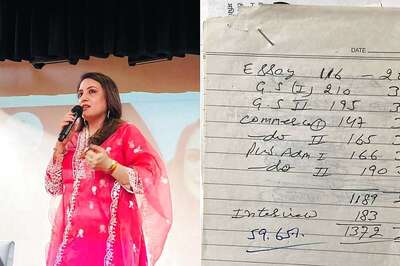
views
New Delhi: Denied information about minutes of meetings of IIM-Ahmedabad, under the Right to Information (RTI), two scholars are set to approach the Central Information Commission. The RTI filed by Deepak Malghan, assistant professor Centre for Public Policy, IIM-Bangalore and Siddhartha Joshi, doctoral fellow, sought information on diversity deficit on campus and asked for the minutes of IIM-A’s three most recent governing board meetings, which have the responsibility of ensuring statutory compliance.
With RTI replies from all IIMs, the duo have compiled a paper on ‘Missing Scholars: Social Exclusion at the Indian Institutes of Management’ that shows how, for the past four decades, the IIMs have been suffering from diversity deficit and social exclusion.
This time they filed an RTI to make sense of the decision making process at IIM-A and asked for minutes of the last three meetings. In response to their latest query, IIM-A claimed that “information sought has no relationship to any public activity or interest and hence cannot be provided.”
When News18 sought comment from IIM-A director's office, in an e-mail they said, “In the recent three board meetings there was no discussion on the diversity deficit at IIMs.”
Malghan said he will file a complaint with CIC, “I believe this is a deliberate ploy to delay the process as much as possible. Their action betrays the implicit trust reposed in them by society at large, especially as it comes at a time when the Parliament was on the verge of granting them unprecedented autonomy through the IIM Bill 2017.”
Malghan and Joshi’s paper states that out of over 500 faculty members in IIMs, only two are from scheduled caste, none from scheduled tribe and only 13 from other backward castes (OBC). The report further states that “the doctoral programs at IIMs must take a large part of the blame for this extant social diversity deficit. For over four decades, the doctoral programs at the IIMs that also account for about a third of all current faculty members at these institutions have brazenly flouted affirmative action provisions for public institutions”.
“The reason IIMs have been able to act with complete impunity is because they have the implicit support of the government. We hope there is a serious debate on the Bill in the Rajya Sabha and the social contract that is implicit at any public institution is clearly spelled out,” Malghan said.
It is also important to distinguish between “access and inclusion” as access is a necessary condition for inclusion. “It is never a sufficient condition. IIMs, even if they eventually come around to improving access, still have a long journey ahead in terms of real inclusion, given the entrenched biases at play,” added Malghan.
The two are pinning their hopes on the IIM Bill to correct the decade’s long injustice done to the SC/STs. The IIM Bill gives the institutes autonomy but has nothing clearly written on the reservation policy in teacher recruitment. All it vaguely mentions is “enabling provision allowing reservation in employment” for which Malghan added, “The IIM Bill is an enabling framework and now we have to design solutions to all sort of problems and dilemmas prevalent in higher education.”



















Comments
0 comment